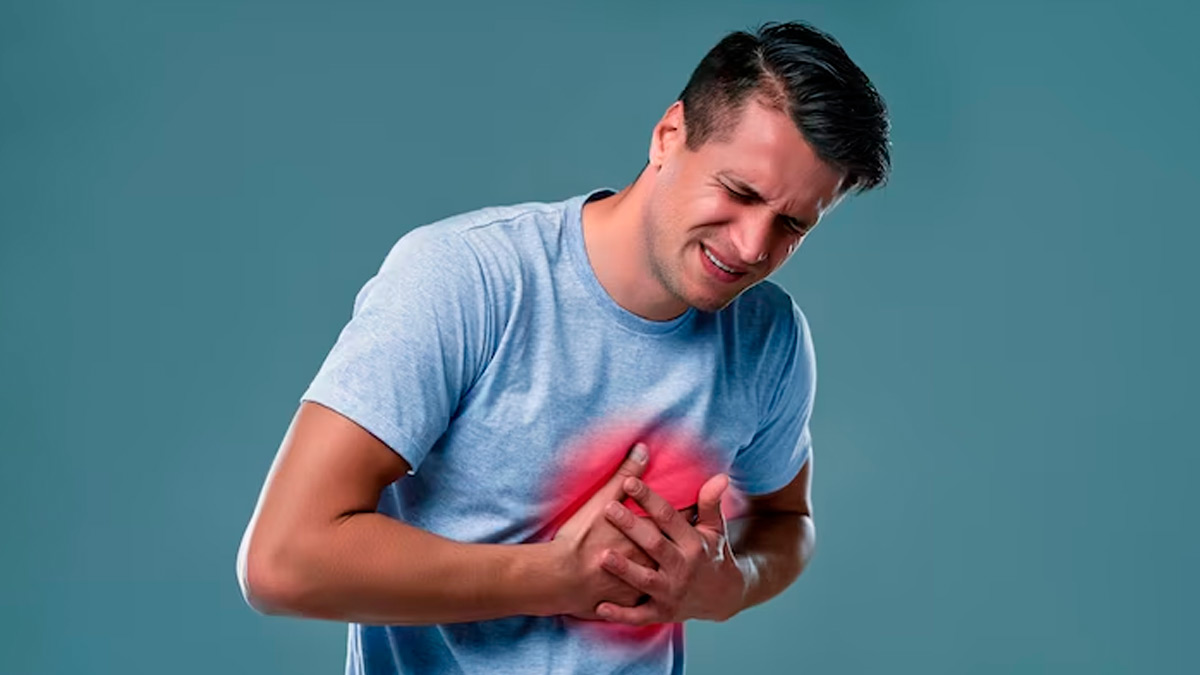
Have you ever experienced a moment when your heart seemed to flutter or race unexpectedly? Perhaps you brushed it off as a sign of excitement or nerves, but what if it could be something more? Cardiomyopathy, a group of heart conditions, may quietly manifest in our lives, impacting our heart's rhythm and function.
We spoke to Dr V Rajasekhar, Senior Consultant Interventional Cardiologist and Electrophysiologist, Certified Specialist for TAVR (Percutaneous Trans Aortic Valve Replacement), Yashoda Hospitals, Hyderabad, who explained cardiomyopathy, its signs, causes, and treatment.
What Is Cardiomyopathy
Dr Rajasekhar said, “Cardiomyopathy is a group of heart diseases that affect the heart muscle, weakening its ability to pump blood efficiently. It can lead to developing scar tissue and cause your heart to stiffen, expand, or thicken.”
Cardiomyopathy can be brought on by a genetic trait that is inherited or it can develop as a result of several different medical disorders, including heart disease, hyperthyroidism, or alcohol abuse. This condition can lead to serious complications and even heart failure if left untreated.
The World Health Organization reports that approximately 17.9 million people lost their lives to cardiovascular diseases (CVDs) in 2019, making up 32% of all global deaths.
Types of Cardiomyopathy
There are three main types of cardiomyopathy which includes:
- Dilated Cardiomyopathy (DCM)
- Hypertrophic Cardiomyopathy (HCM)
- Restrictive Cardiomyopathy (RCM)
Dr Rajasekhar said, “DCM is characterised by an enlarged heart chamber, while HCM is characterised by thickened heart muscle walls. RCM, on the other hand, is characterised by stiffening of the heart muscles, which restricts proper blood flow.”
Also Read: Panic Attack Vs Heart Attack: Expert Lists The Differences
Symptoms Of Cardiomyopathy

Cardiomyopathy symptoms can differ based on the type and severity of the condition. Some of the common symptoms include:
- Shortness of breath
- Fatigue
- Chest pain
- Irregular heartbeats (arrhythmias)
- Swelling in the legs, ankles, and feet
- Dizziness
- In some cases, patients may experience fainting spells or even sudden cardiac arrest
Causes Of Cardiomyopathy
Dr Rajasekhar noted, “Cardiomyopathy can be caused by various factors, including genetics, infections, chronic high blood pressure, heart valve problems, alcohol abuse, and certain medications. In many cases, the exact cause remains unknown, and it is referred to as idiopathic cardiomyopathy.”
Treatment For Cardiomyopathy

Treatment for cardiomyopathy aims to alleviate symptoms, slow down disease progression, and prevent complications. Dr Rajasekhar said, “In mild cases, lifestyle changes, such as a heart-healthy diet, regular exercise, and avoiding alcohol and tobacco can be effective. Medications like beta-blockers, ACE inhibitors, and diuretics may also be prescribed to manage symptoms and improve heart function.”
On the other hand, for advanced cases, medical interventions like Implantable Cardioverter-Defibrillators (ICDs) may be recommended to monitor and correct irregular heart rhythms. In severe cases, heart transplantation could be considered.
Also Read: Heart Disease: Watch Out For These Signs That May Appear On Your Skin
Research and Future Perspectives
Dr Rajasekhar added, “Researchers continue to explore new therapies and treatment options for cardiomyopathy. Gene therapy and stem cell therapy hold promise in potentially reversing the damage to the heart muscles and improving heart function in the future.”
Prevention and Awareness
Early detection and management play a crucial role in the treatment of cardiomyopathy. Regular check-ups with a healthcare provider, especially for those with a family history of heart disease, can help identify the condition early on and prevent its progression.
Disclaimer
The information in this article is provided by the expert and is for informational purposes only. Hence, we advise you to consult with your expert for a diagnosis and treatment catered to your requirements.








